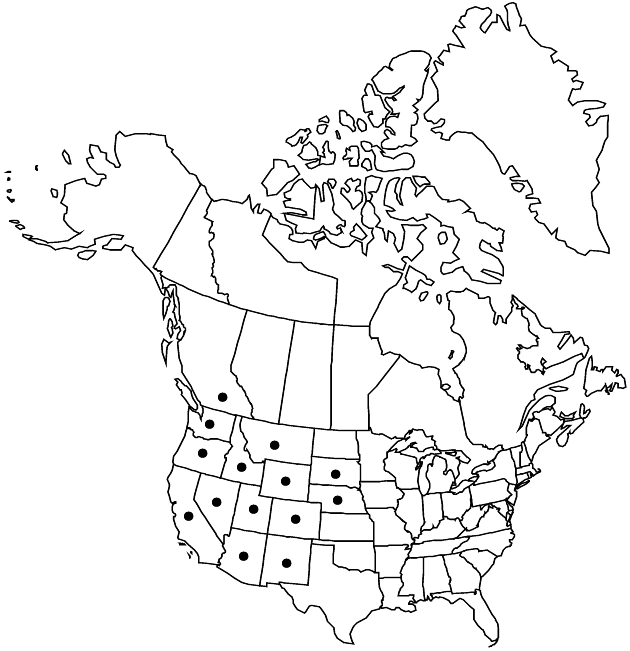Difference between revisions of "Chrysothamnus viscidiflorus"
Trans. Amer. Philos. Soc., n. s. 7: 324. 1840.
FNA>Volume Importer |
FNA>Volume Importer |
||
| Line 11: | Line 11: | ||
|name=Crinitaria viscidiflora | |name=Crinitaria viscidiflora | ||
|authority=Hooker | |authority=Hooker | ||
| + | |rank=species | ||
|publication_title=Fl. Bor.-Amer. | |publication_title=Fl. Bor.-Amer. | ||
|publication_place=2: 24. 1834 | |publication_place=2: 24. 1834 | ||
| Line 73: | Line 74: | ||
-->{{#Taxon: | -->{{#Taxon: | ||
name=Chrysothamnus viscidiflorus | name=Chrysothamnus viscidiflorus | ||
| − | |||
|authority=(Hooker) Nuttall | |authority=(Hooker) Nuttall | ||
|rank=species | |rank=species | ||
| Line 85: | Line 85: | ||
|publication year=1840 | |publication year=1840 | ||
|special status= | |special status= | ||
| − | |source xml=https://jpend@bitbucket.org/aafc-mbb/fna-data-curation.git/src/ | + | |source xml=https://jpend@bitbucket.org/aafc-mbb/fna-data-curation.git/src/eaa6e58056e40c9ef614d8f47aea294977a1a5e9/coarse_grained_fna_xml/V19-20-21/V20_418.xml |
|tribe=Asteraceae tribe Astereae | |tribe=Asteraceae tribe Astereae | ||
|genus=Chrysothamnus | |genus=Chrysothamnus | ||
Revision as of 19:28, 16 December 2019
Shrubs, 10–120 cm; with woody, branched caudices, bark whitish tan, becoming gray, flaky and fibrous with age. Stems ascending, green, soon becoming tan, glabrous or puberulent, sometimes resin-dotted, often resinous. Leaves ascending, spreading, or deflexed; sessile; blades with evident midnerves plus sometimes 1–2 pairs of smaller, collateral nerves, linear to lanceolate, 10–75 × 0.5–10 mm, flat or sulcate, often twisted, margins often undulate, sometimes ciliate, apices acute to apiculate, faces glabrous or puberulent. Heads in dense, rounded cymiform arrays (to 7 cm wide), not overtopped by distal leaves. Involucres cylindric to obconic or campanulate, 4–7 × 1.5–2.5 mm. Phyllaries 12–24 in 3–5 series, in spirals or weak vertical ranks, mostly tan, green to brown subapical patch often present, midnerves usually evident (at least distally), linear-oblong, lanceolate to elliptic or obovate to spatulate, 1–5 × 0.5–1.2 mm, unequal, chartaceous, margins scarious, eciliate or ciliolate to erose-ciliolate, flat or convex, sometimes weakly keeled, apices acute to obtuse or rounded, sometimes apiculate, flat, faces glabrous or puberulent. Disc florets (3–)4–5(–14); corollas 3.5–6.5 mm, lobes 0.7–1.7 mm; style branches 2.2–3.2 mm (exserted beyond spreading corolla lobes), appendages 0.8–1.5 mm (length shorter than stigmatic portion). Cypselae tan to reddish brown, turbinate, 2.5–4.2 mm, ± 5-angled, moderately to densely hairy; pappi tan, 3.5–6 mm.
Distribution

w North America.
Discussion
Subspecies 5 (5 in the flora).
Selected References
None.
Lower Taxa
Key
| 1 | Leaves flat, glabrous; corollas 3.5–4.5 mm; nc Arizona | Chrysothamnus viscidiflorus subsp. planifolius |
| 1 | Leaves twisted or hairy, or corollas 3.5–6.5 mm; w United States | > 2 |
| 2 | Distal stems, and frequently leaves, hairy | > 3 |
| 2 | Stems glabrous; leaves glabrous, margins ciliate | > 4 |
| 3 | Stems greenish, hirtellous to puberulent; leaves green, 3- or 5-nerved, 2–6 mm wide, abaxial faces hirsute to hirtellous, adaxial usually glabrous | Chrysothamnus viscidiflorus subsp. lanceolatus |
| 3 | Stems and leaves grayish green, densely puberulent; leaves 1–2(–4) mm wide; 1-nerved (sometimes 3-nerved proximally) | Chrysothamnus viscidiflorus subsp. puberulus |
| 4 | Leaves 0.5–1 mm wide; florets 3–4(–5); involucres ± turbinate | Chrysothamnus viscidiflorus subsp. axillaris |
| 4 | Leaves 1–10 mm wide; if 1 mm wide, involucres narrowly cylindric, and florets 4–14 | Chrysothamnus viscidiflorus subsp. viscidiflorus |